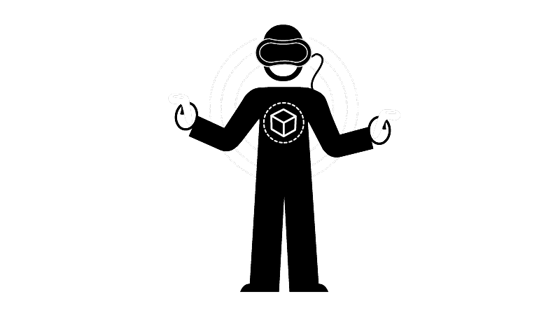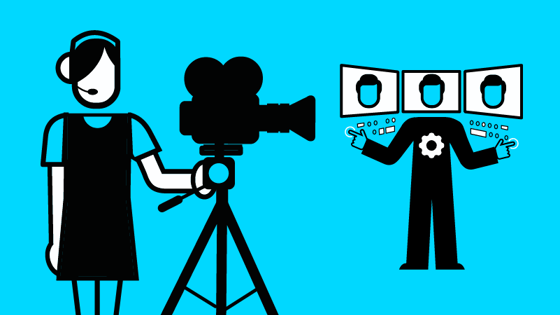Games
Virtual reality (VR) programmer
Also known as: Augmented reality (AR) programmer, Extended reality (XR) programmer, Mixed reality (MR) programmer, VR developer, VR engineer

What does a VR programmer do?
VR programmers write the code for cutting-edge game development. VR, in which a player puts on a headset or goggles and has the sensation of actually stepping into another world, offers a deeper sense of immersion than video games.
But for all its immersive potential, VR programmers have significant challenges to overcome to make the most of the technological possibilities.
VR games can cause motion sickness for a variety of reasons. Lag between the player’s movements and the game’s response is one of the most common causes of motion sickness, so maintaining a high, stable frame rate is critical in VR games. VR programmers are also responsible for researching and implementing a range of other motion sickness-reducing mechanisms.
There are significant challenges for VR programmers. And significant opportunities too.
Watch
What’s a VR programmer good at?
- Programming: write efficient code that can create the desired gameplay on the game platform
- Knowledge of virtual gameplay: imagine gameplay in a virtual world, understanding what works and what doesn’t, know how to mitigate issues like motion sickness
- Innovation: imagine solutions that have never been thought of before - VR is still a developing field and there is no “correct way” to implement VR games
- Knowledge of game platforms: understand the possibilities and constraints of mobile and other platforms
- Collaboration: share ideas with other programmers and designers working in an innovative way
Who does a VR programmer work with?
VR programmers work closely with the lead designer, gameplay programmer, art department and other VR programmers.
How do you become a VR programmer?
This is not an entry-level position. Become a games programmer first and then move into VR. Look at the generalist programmer job profile for details of how to do this.
At school or college:
Take A-levels, Highers or Level 3 BTECs from this list. Compliment your sciences subjects with art ones, if you enjoy them.
- Maths
- Physics
- Computer science
- Graphic design
- Graphic communication
- Art and design
- BTEC Extended Diploma in Creative Digital Media Production
- BTEC Diploma in Computing
Build a portfolio:
Create work that you can show off to employers. This is essential. Go to build your games portfolio to learn how.
Start modding:
Create levels of a game using software provided by the publishers.
Get a degree:
Most people in the games industry have got degrees. Get a degree in, physics, programming, game development or advanced mathematics. Or have a look at ScreenSkills’ list of recommended courses in games and select one in programming. We recognise courses with our ScreenSkills Select award where they offer training in the relevant software, dedicated time to building a portfolio and have strong links with the games industry.
Try VR:
Play VR games and experiences and get used to motion sickness and response time-related issues. Familiarise yourself with the ways other games mitigate these issues.
Network:
Get to know people in the games industry by attending events, including games conferences and expos. Meet professionals and ask them questions about their work, while demonstrating interest and knowledge in the industry. Offer to provide them with your professional contact details and try to stay in touch with them. Go to Network well to learn how to do this.
Search for jobs:
Use the UK Games Map to find out if there are games companies near you. Then go to their websites directly and check out their open roles. Look for one as a generalist programmer first.
You might also be interested in…
Being a lead games designer, user experience (UX) designer, graphics programmer, gameplay programmer, physics programmer, artificial intelligence (AI) programmer, tools engineer, an engine programmer or a network programmer in the games industry. You might also be interested in being a software developer in visual effects (VFX). Alternatively, you could consider a technical director (TD) role in VFX or in the animation industry.






